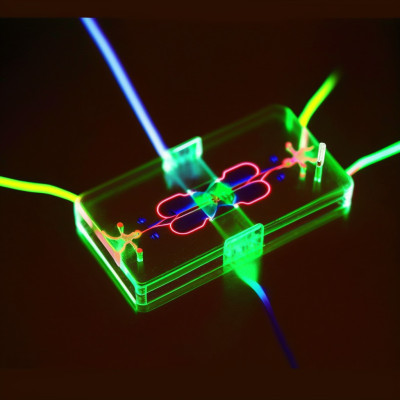News
Queen Mary team awarded £7 million grant to train next generation of organ-on-a-chip scientists
13 March 2024


A team of bioengineers led by Professor Hazel Screen have been awarded a £7 million grant to establish an EPSRC Centre for Doctoral Training (CDT) in Next Generation Organ-on-a-Chip Technologies.
Queen Mary University of London is one of 65 universities chosen to receive funding from the Engineering and Physical Sciences Research Council (EPSRC) as part of a landmark £1 billion doctoral training investment.
The grant will train future leaders in the rapidly-expanding field of organ-on-a-chip technology. Organ-chips are miniature bioengineered devices containing living cells, enabling them to mimic the behaviour of organs in the body. This technology is poised to revolutionise pre-clinical drug testing, speeding up the delivery of safer, more effective medicines and reducing the use of animal testing
“We are thrilled to receive this EPSRC CDT grant,” says Professor Screen, Co-Director of the Centre for Predictive in vitro Models, and Head of School of Engineering and Materials Science. “The CDT will bring together a world-class team of researchers and industry partners to train the next generation of scientists and bioengineers who will drive the development and application of organ-chip technology. This innovative approach has the potential to significantly improve drug discovery and development, ultimately leading to more effective and equitable healthcare.”
Currently, the pharmaceutical industry relies on pre-clinical models that often fail to accurately predict human response to drugs. This inefficiency leads to high costs, delays in drug development, and ultimately, fewer treatment options for patients. Organ-chip technology offers a promising solution: they can be engineered to replicate the structure and function of various human organs, providing a more accurate platform for drug testing.
The doctoral training programme will combine cutting-edge research with industry engagement, offering 60 or more industry-linked PhD students the opportunity to develop the skills and knowledge required to translate research into real-world applications.
“The CDT in Next Generation Organ-on-a-chip Technologies sets a transformative vision to bring together the full stakeholder community in organ-on-a-chip technology,” says co-lead Professor Martin Knight, Co-Director of the Centre for Predictive in vitro Models and Dean for Research at the Faculty of Science and Engineering. “This collaborative approach will be instrumental in accelerating the development and adoption of this game-changing organ-chip technology.”
Science and Technology Secretary, Michelle Donelan, said: “As innovators across the world break new ground faster than ever, it is vital that government, business and academia invests in ambitious UK talent, giving them the tools to pioneer new discoveries that benefit all our lives while creating new jobs and growing the economy.
“By targeting critical technologies including artificial intelligence and future telecoms, we are supporting world class universities across the UK to build the skills base we need to unleash the potential of future tech and maintain our country’s reputation as a hub of cutting-edge research and development.”
| Contact: | Ayden Wilkes |
| Email: | a.wilkes@qmul.ac.uk |
| People: | Hazel SCREEN Martin KNIGHT |
| Research Centre: | Bioengineering |




